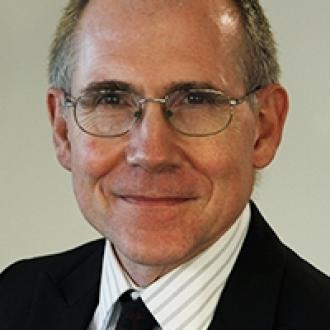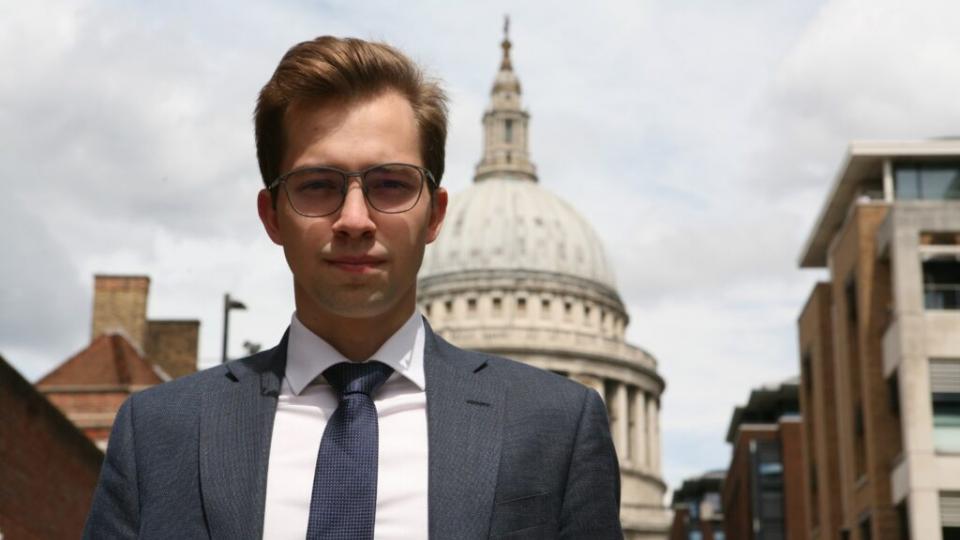- Postgraduate
Legal Practice (Top-up) LLM
Overview
Why study at the University of West London?
- Ranked 30th university in the UK - The Guardian University Guide 2025
- Number 1 London university for overall student satisfaction - National Student Survey 2024**
- Best university for Student Experience and Teaching Quality in the UK - The Times and Sunday Times Good University Guide 2024
Whether you have a Postgraduate Diploma in Legal Practice (LPC) or are a practising solicitor looking to specialise further, this course will enable you to enhance your qualifications with a Masters-level degree.
Our LLM Legal Practice top-up course complements the compulsory vocational stage of learning required to embark on a law career.

Select your desired study option, then pick a start date to see relevant course information:
Start date:
If your desired start date is not available, try selecting a different study option.
Why study Legal Practice (Top-up) with us?


What our students say…
UWL has been really good for networking, there are many work experience opportunities you can take part in and you can meet practising solicitors, barristers and legal professionals one-to-one at events on campus. I particularly enjoyed the practical side of the course. It's been a good way of understanding the law beyond what you read about in books.




Course detail & modules
This course provides practice-relevant study on aspects of substantive law and legal practice.
Teaching methods include lectures, tutorials, seminars, small group work and workshops. The emphasis is on developing the research and analytical skills you need to create a piece of self-managed research relevant to law practice.
You can choose to complete your dissertation either by undertaking an extended piece of research or a self-directed, work-based learning portfolio. This will enable working lawyers to critically reflect on their own legal practice throughout the course.
Our LLM top-up Legal Practice course is run by the School of Law at UWL to provide you with both the high-quality teaching and the personal attention you need to make the most of your studies. Our teaching staff is made up of experienced practising solicitors with a range of specialisms.
As a student at the School, you will have access to the specialist legal practice area in the Paul Hamlyn Library for private study.
The library is modern and well-equipped and provides access to PCs, electronic resources and practitioner texts. You also have remote access to a comprehensive range of electronic legal research and course resources via the internet.
Compulsory modules
-
Research Methodology
You will develop and complete a research proposal to ensure you are fully prepared to move to the research and writing of the dissertation.
-
Dissertation for LLM Legal Practice (Top-up)
The dissertation is an original piece of research into legal practice of between 13,000 to 15,000 words. Research undertaken must be self-managed though students will be assigned a dissertation supervisor either from staff at the University of West London with similar research interests or from within the legal profession
Entry requirements
To apply you should meet one of the following criteria:
- a graduate of the Postgraduate Diploma in Legal Practice (LPC), with 120 credit modules completed, within the last five years
- a graduate of the Bar Professional Training Course (BPTC) (formerly the Bar Vocational Course), with 120 credit modules completed, within the last five years
- a practising solicitor who has undertaken the former Law Society's Solicitors’ Final Examinations and has at least six months practice experience within the last two years - a practising barrister who has undertaken the former Bar Final examinations and has at least six months practice experience within the last two years
- a foreign qualified lawyer admitted to practice in England or Wales with at least six months practice experience within the last two years
We look for students who show enthusiasm and a passion for the subject through previous study or professional experience.
If you have any questions about the relevance of your qualifications or experience please contact the course leader shown in the teaching staff.
You need to meet our English language requirement of 6.5 overall score for IELTS, with a minimum of 5.5 for each of the 4 individual components (Reading, Writing, Speaking and Listening). Visit our English language requirements page for information on other English language tests we accept.
You also need academic qualifications at the same level as UK applicants. In some countries where teaching is in English, we may accept local qualifications. Check for local equivalents.
We offer pre-sessional English language courses if you do not meet these requirements. Find out more about our English Language courses.
We look for students who show enthusiasm and a passion for the subject through previous study or professional experience.
If you have any questions about the relevance of your qualifications or experience please contact the course leader shown in the teaching staff.
Fees & funding
Fees for this course are currently unavailable. Please check back or visit our fees page for more information.
Funding your studies
You may be eligible to apply for a postgraduate loan to cover your course and living costs.
Additional funding is available to some types of students, such as disabled students or those with dependants.
We offer a range of scholarships and bursaries, including awards for specific subjects.
Awards for law students are also on offer.
View full details, including conditions and eligibility.
Fees for this course are currently unavailable. Please check back or visit our fees page for more information.
International students - funding your studies
We offer scholarships for international students including International Ambassador Scholarships.
Further information about funding and financial support for international students is available from the UK Council for International Student Affairs.
Teaching staff

Professor Philipp Elliot-Wright
Philipp is Head of the School of Law and Professor, BA (Hons), MA, LLM, PhD, PGCertEd, SFHEA, FRSA, Barrister (NP). Philipp is also responsible for the teaching of undergraduate Land Law and postgraduate Research Methodology.
For over two decades, he has participated in various consultations with the Home Office and Health and Safety Executive in the on-going formulation of the legal regulation of firearms and explosives. Philipp has also been involved with research into the evolution of judicial independence and the rule of law in England and has contributed to published literature on the contemporary development of the Chinese judiciary in the twenty-first century.
Presently, Philipp’s research highlights the use of student analytics to promote a student-centric approach to maximise the full range of student engagement in the study of Law, ensuring students fulfil their potential.
Philipp is Head of the School of Law and Professor, BA (Hons), MA, LLM, PhD, PGCertEd, SFHEA, FRSA, Barrister (NP). Philipp is also responsible for the teaching of undergraduate Land Law and postgraduate Research Methodology.
For over two decades, he has participated in various consultations with the Home Office and Health and Safety Executive in the on-going formulation of the legal regulation of firearms and explosives. Philipp has also been involved with research into the evolution of judicial independence and the rule of law in England and has contributed to published literature on the contemporary development of the Chinese judiciary in the twenty-first century.
Presently, Philipp’s research highlights the use of student analytics to promote a student-centric approach to maximise the full range of student engagement in the study of Law, ensuring students fulfil their potential.
Study & career progression

The course will enhance your career opportunities by providing potential employers with evidence of your understanding and detailed knowledge of a particular area of legal practice, improving your employability in an increasingly specialised sector of the market.
You may also decide to continue your studies by applying for PhD study.
How to apply

You can apply online at any time by following the link below.
Our application form will ask you for some information about:
- what you want to study
- your previous qualifications or experience
- your references
- how we can contact you.
Want to ask us a question first? We would love to hear from you. Contact us free on:
- 0800 036 8888
- courses@uwl.ac.uk
Apply for this course
Next steps after making your application
We aim to make a decision on your application as quickly as we can. If we need any more information about your qualifications, we will be in touch.
In the meantime, come and visit us and find out more about what studying at UWL is like. Sign up for an open day or join a campus tour.
Visit us and see for yourself
Talk to our tutors and find out about our courses and facilities at our next open day or join a campus tour.
We're here to help
Any questions about a course or studying at UWL? We're here to help - call us on 0800 036 8888 (option 2, Monday – Friday 10am-4pm) or email us on courses@uwl.ac.uk.
Our postgraduate prospectus
All of our courses in one place - download now or order a hard copy.
Search for courses
Alumni

Sunil Sheth
Sunil, an alumnus of UWL Law School and a qualified solicitor. He advises clients on international tax and estate planning, wealth management and private funds and in sectors including financial services, real estate, infrastructure, hotels and hospitality.
He is a trustee of the disability rights charity Sense International. He is also the Chair of Anti-Slavery International, a UK charity established in 1839 and regarded as the oldest human rights organisation in the world. He is a trustee of The Hospice Biographers, a charity which offers terminally ill patients the chance to have their life stories professionally recorded on audio for their pleasure and relief, and for their families to hear their voices and memories for generations to come.
He was also a Founder of the Society of Asian Lawyers and Chair of the organisation for many years.

Ilia Martynov
Having completed his undergraduate Bachelor of Laws (LLB) at the University of West London with a First-Class Honour In October 2022 Ilia began his LLM programme and became a Master of Law candidate at the University of Cambridge (Fitzwilliam college).
Since joining Sterling Law in March 2022 as a Legal Assistant, Ilia started working for Immigration and Commercial departments. At the Immigration department, Ilia is focused on complex immigration matters, asylum cases, and business immigration. At the Commercial department, Ilia is assisting solicitors in companies and charity registration, civil litigation, and other matters. His areas of expertise include:
- commercial Law
- immigration Law
- human Rights
- intellectual Property

Annetta Jackson
Annetta currently serves as a Program Officer at the Directorate of Gender Affairs with responsibility for Legal and Institutional Frameworks. She is also a Storyteller at Intersect Antigua and a Black Feminist Fund Fellow.
She received a Legal Education Certificate from the Council for Legal Education in April 2022 and was admitted to practice as an Attorney-at-Law of the Eastern Caribbean Supreme Court in Antigua and Barbuda in November 2022.
Annetta oversaw the abolition of the death penalty in Barbados and six Eastern Caribbean States: Dominica, Grenada, St Vincent & The Grenadines, St. Lucia, St. Kitts & Nevis and Antigua & Barbuda.

Kelly Johnson
Kelly has always been interested in business and the work that goes on behind the scenes that allow major companies to grow and reach their full potential.
While living in South Africa, she started her own business which allowed her to acquire real-world knowledge of the challenges that businesses face.
Her extensive background in hospitality has enabled her to quickly build a rapport with clients and efficiently satisfy their requests in a fast-paced environment.

Emma Hughes
Prior to beginning pupillage, Emma worked at a leading London law firm; dealing primarily with care proceedings featuring non-accidental injury, domestic abuse, sexual abuse, neglect, forced marriage, and radicalisation.
Emma received an Access to the Bar Award and a Jules Thorn Scholarship from Middle Temple.
Emma is the Head of the Mentoring Programme at Bridging the Bar (BTB), a charity dedicated to diversifying the Bar’s profile by creating opportunities for those from underrepresented backgrounds. Emma sits on the Bar Council Race Working Group and currently serves as Middle Temple Young Barrister's Association President.

Shadia Ousta
Shadia began her LLB after completing the LPC in 2007. She began a placement at Howe and Co in Ealing before becoming a paralegal and then a trainee at the firm. After a varied career in private and government practice, she is now the Senior Community Services Solicitor at Islington Council. Her areas of practice include:
- administrative and public law
- human rights
- immigration - nationality and citizenship
- litigation - general
- higher courts rights - civil accredited
- personal injury.
Employability
At the School of Law, we strive to offer valuable opportunities to enhance your employability. We have a module dedicated to employability and professional skills available to all law students at all levels. Last year our students benefited from the following:

Opportunities
- Ten Old Square Pupillage Scheme
- MacFarlanes First Year Scheme
- Magistrates Legal Advisers Mentoring Scheme – students spending a week with advisers
- work opportunities with:
- the West London Equality Centre
- Acton Housing Clinic with Acton Homeless Support Through Court
- Ealing Law Centre
- Ealing Advice Service
- two law firms providing internships and placement opportunities alongside over a dozen on an opportunistic basis from local firms.

Events
- Careers fair
- Guidance on CVs and professional qualification routes
- Sky legal insight day
- Interviews in the legal sector

Talks
- Aaron Mayers, on becoming a barrister
- Fabrizio Partner, senior partner of Dorsey & Whitney LLP on work as a commercial lawyer
- Magistrates – what does a magistrate look like?
- Equality Law – Karon Monaghan QC, Matrix Chambers
Guest lecturers

Michael Mansfield KC
One of the best-known barristers in the United Kingdom. A radical activist lawyer and human rights defender.
He has variously represented the Guildford Four, the Birmingham Six, individuals wrongly convicted of IRA bombings, the Angry Brigade, Ruth Ellis (the last woman to be hanged in Great Britain) in a posthumous appeal, Stephen Lawrence’s family, Barry George at the Inquest of tv presenter Jill Dando, Arthur Scargill, and striking miners, Mohamed al-Fayed in the inquest of his son Dodi and Diana Princess of Wales, the families of Charles de Menezes, and of Mark Duggan, both shot by police, the families of the Hillsborough stadium disaster and those bereaved by the sinking of the Marchioness, and the Bloody Sunday shootings.
Recently, he was engaged by the family of Emiliano Sala, the footballer who died in a plane crash on the way to join Brighton Football Club. He is also representing the survivors and bereaved of the Grenfell Tower fire.
Image attribute - Brian O'Neill, CC BY-SA 4.0, via Wikimedia Commons

Andrew Ballheimer
Andrew joined A&O in 1987, became a partner in 1994 and has over 32 years of post-qualification experience in mergers and acquisitions and in capital markets (both international and domestic). His client base includes FTSE 100 and FTSE 250 companies and banks in the UK and major public and private corporations and financial institutions outside the UK.
Andrew Ballheimer is a Senior Adviser with Teneo. Prior to joining Teneo, Andrew was the Global Managing Partner of Allen & Overy LLP (the 550 partner, 6,000 person, global elite law firm with 43 offices around the world).

Tan Ikram CBE
Tan qualified as a barrister in 1990 and as a solicitor in 1993 becoming a partner in IBB solicitors defending complex fraud. He moved into a judicial career in 2007, starting as a deputy district judge, postgraduate medical education and training board, then a legal assessor for the nursing and midwifery council. In 2017 he was appointed Deputy Senior District Judge authorised to hear extradition and terrorism cases. Since 2015 he has also been an associate judge and HM Coroner of Her Majesty’s Court of the Sovereign Base Areas, Cyprus.

Clive Coleman
Drawing on his years as a practicing barrister, Clive covered a vast range of domestic and international legal stories and issues including 2019’s momentous Supreme Court prorogation case, Brexit, the growing courts backlog, the Barclay brothers ‘Ritz’ dispute, GDPR, the VW emissions scandal, phone hacking, Sir Cliff Richard v BBC, and the Hillsborough tragedy inquests.
Prior to becoming BBC Legal Correspondent, Clive was for six years the presenter of Radio 4’s flagship legal analysis programme ‘Law In Action’, and presented a raft of BBC programmes including Panorama ‘The Death of Kiss and Tell’, on the rise of privacy protection under the Human Rights Act.
Overseas trips
Law students have for many years been offered the opportunity of expanding their knowledge and experience of other cultures and historical sites critical to understanding the development of international law.
Past law students visited:

Krakow and Auschwitz-Birkenau concentration camp
The Auschwitz-Birkenau concentration camp is known as a symbol of the Holocaust and the events that took place there helped trigger the foundation of international legal enforcement of human rights and laws to prevent and punish the perpetrators of such.
During World War I, over 1 million people lost their lives there, primarily Jewish, but also Poles, Romanian, and Russian. The site has been preserved, and students participate in a day-long formal guided tour.

The Hague
Established in 2002, the International Criminal Court has the jurisdiction to prosecute individuals for the international crimes of genocide, crimes against humanity, and war crimes. Often referred to as the World Court, the International Court of Justice is the main judicial organ of the United Nations.
Both courts are visited, with official guides and interactive events with court staff. Additionally, students receive a tour and presentation from the staff at the Residual Special Court for Sierra Leone. Students also have the opportunity on the day of arrival to enjoy the beautiful city of Amsterdam with its canals and museums.

Nuremberg
At the end of the Second World War Nuremberg was the site of the first-ever international war crime trials that helped lay the basis of all modern human rights legislation. The main trial of 24 of the most central participants in the Holocaust took a year to complete.
Students visit the original courtrooms as part of an official guided tour including interactive workshops and presentations. Nuremberg itself is a beautiful walled medieval city complete with a castle and students have a day to enjoy its shops and many attractions.
Student life at UWL
Important notes for applicants
Disclaimer
*Modern universities - defined as higher education institutions that were granted university status in, and subsequent to, 1992.
**The National Student Survey 2023 and 2024 - Average of answers to all questions by registered student population. Excludes specialist institutions.
Testimonials - our students or former students provided all of our testimonials - often a student from the course but sometimes another student. For example, the testimonial often comes from another UWL student when the course is new.
Optional modules - where optional modules are offered they will run subject to staff availability and viable student numbers opting to take the module.
Videos - all videos on our course pages were accurate at the time of filming. In some cases a new Course Leader has joined the University since the video was filmed.
Availability of placements - if you choose a course with placement/internship route we would like to advise you that if a placement/internship opportunity does not arise when you are expected to undertake the placement then the University will automatically transfer you to the non-internship route, this is to ensure you are still successful in being awarded a degree.





